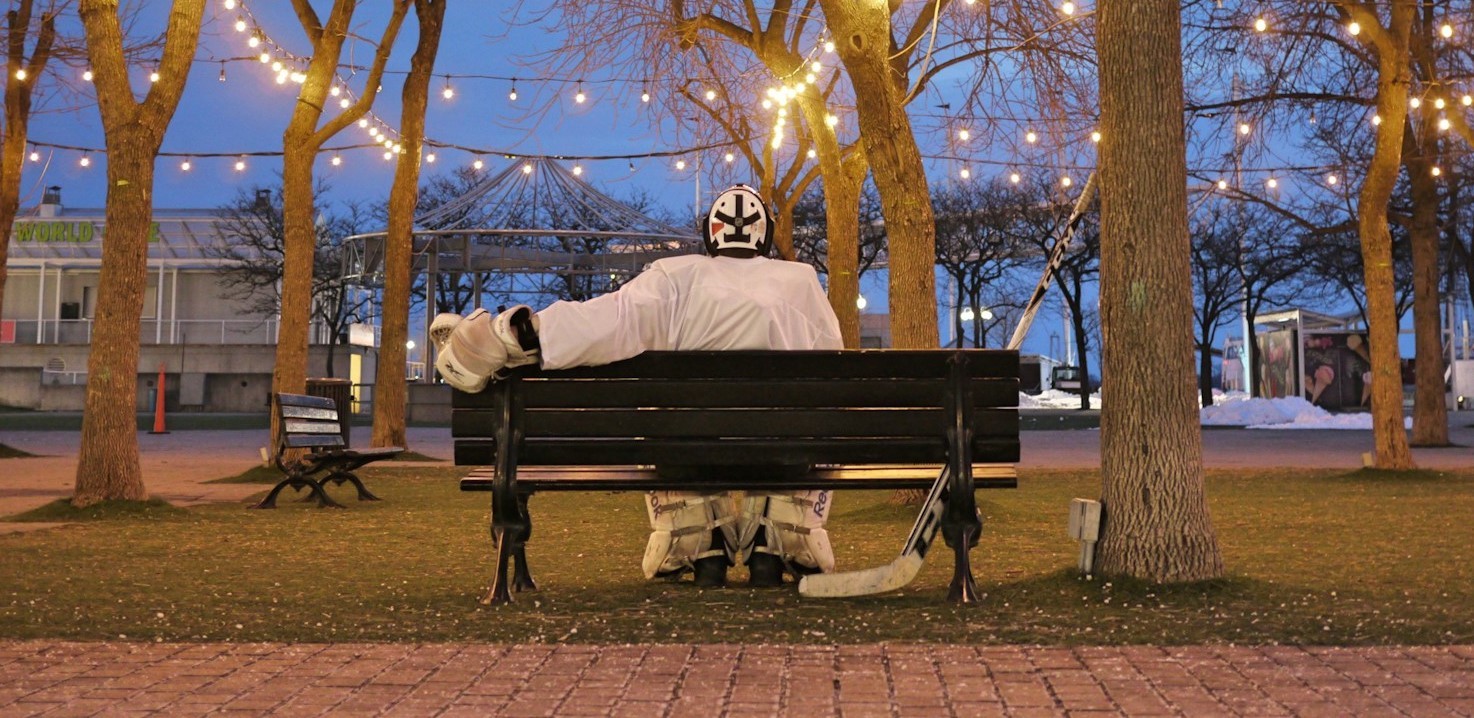

How to Coach Goalies
Coaching Goalies
Ok - this page is far from finished. It's the center of a new initiative to help our goalies, their families, and our non-goalie coaches to develop goaltending into an organizational strength and allow them to maximize their understanding and enjoyment of hockey. It's a big project but information will slowly be added & organized here during the course of the season.
Young vs. Older Goalies
Before you dive in too far - it's important to keep things simple & fun for young goalies. Specialization often seems like the key to success for young athletes; for young goalies - you can absolutely set them back by throwing too much at them.
In addition to making things fun, focus on skating, tracking the puck and the play developing around them, and on battling for saves and rebounds. When they're young, skating out, stickhandling, passing, and normal hockey player skills are still really important to their development as goalies in the future. Goalies should probably be athletes first, hockey players second, and goalies third.
Critical Elements of Goalie Training
- Make it fun and build goalies into your drills in a way that simulates actual gameplay.
- Use one puck. Treat drills like a game where the puck (not a coach's whistle, etc) dictates the beginning and the end of a drill.
- Every rep can allow for pre-shot prep, the shot, and post-save recovery. Play out all rebounds as if it's a playoff game situation.
- Use age-appropriate shooters so your goalie is reading the release or playmaking ability of the level they'll play against. Add defenders to some drills so that goalies read off of them, too.
Goalie Drill Design Tips
Quality over quantity with puck touches.
- the second goalie at any station can be a passer to work on stickhandling.
- plan for each goalie to get AT LEAST two sets of reps at each drill to allow for reflection and modification.
Enjoy the process.
- You'll get more out of your goalies if they are having fun.
- Fun is going to look a little different for each age level.
- For the very youngest goalies it may be games like tag or Simon Says.
- For your older goalies it might be competitions & creativity with drill design to keep practice fresh.
Challenge your goalies.
- They can only improve to the level that you push them.
- Spend less time with scripted (pre-determined) shots & routes.
- Embrace chaos - learning is messy. Get comfortable with goalies getting scored on. Make them comfortable to enable them to bounce back and reset.
- Progress your drill when it's too easy. Dial it back when it's too hard.
Explain drill to shooters but not goalies (occasionally) so that goalies make reads & decisions.
- Ask goalies how a set went instead of telling them how it went. This will develop reflection & decision making after the drill is over. Encourage them to talk about what went well or what didn't.
Goaltending Coach Development Tools
USA HOCKEY TRAINING
If you are the designated Goaltending Coach for your team, it is strongly recommended that you complete the Goaltending Coach Development Program provided by USA Hockey.
Oops!
You have unsaved elements
Please save or cancel the pending changes to the elements within your page and then try saving again.
